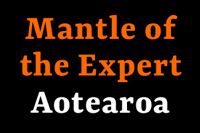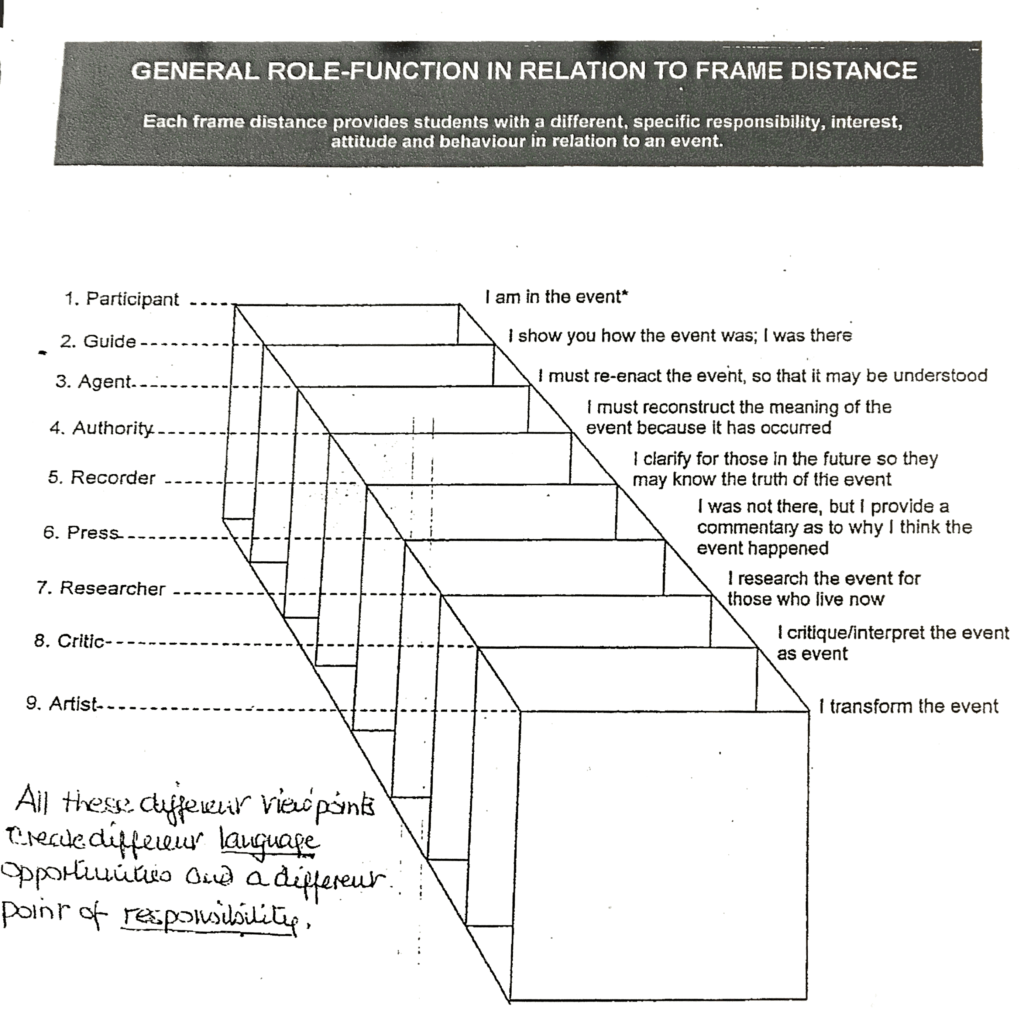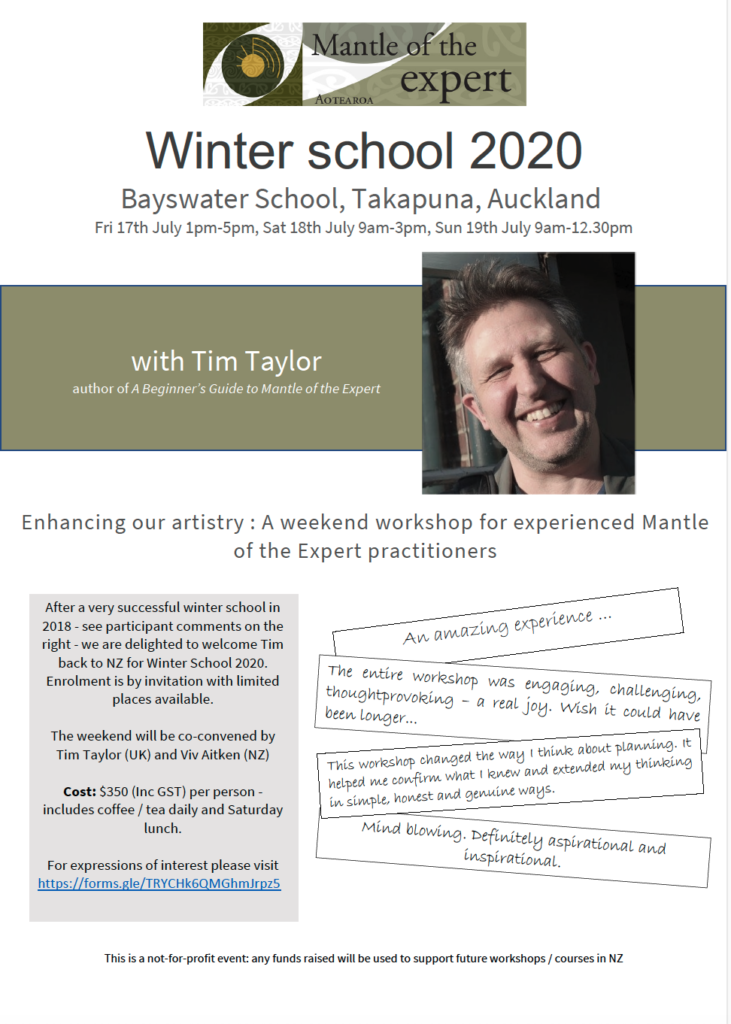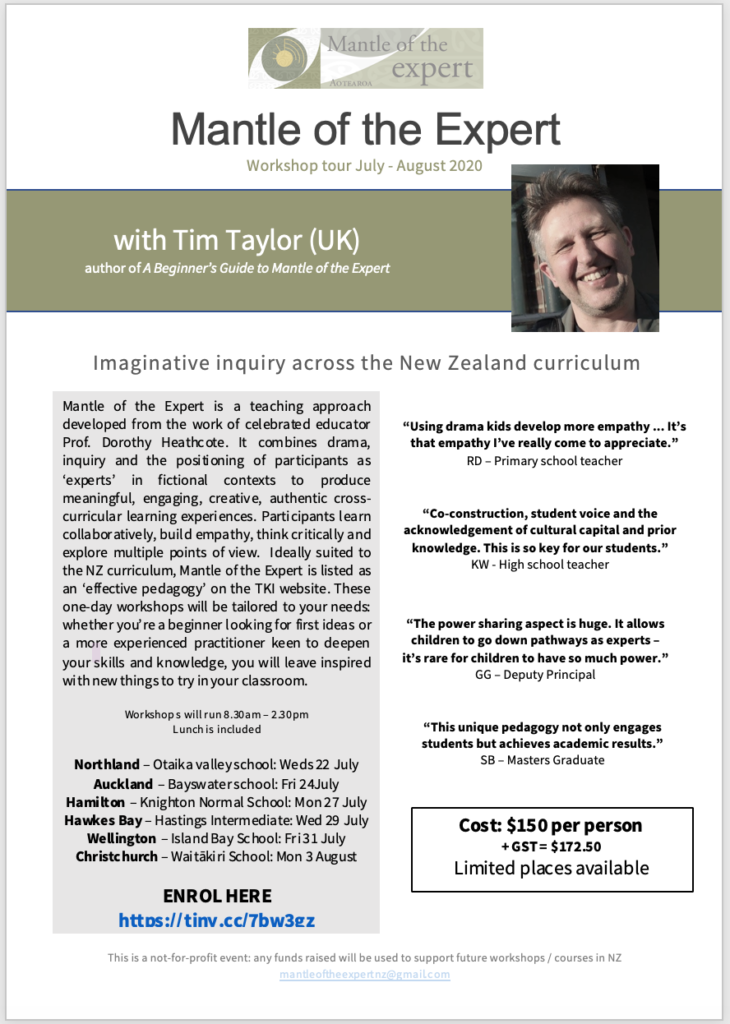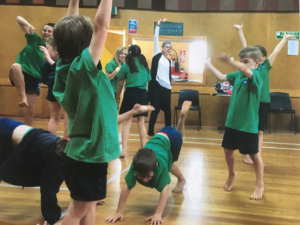He waka eke noa
In early March, a group of teachers with a passion for Dramatic Inquiry travelled from all over Aotearoa to attend a two-day hui in Wellington. Our purpose was to begin the process of establishing a not-for-profit Charitable Trust. The Trust will produce resources, provide courses and provide support so that more teachers in Aotearoa can learn about Dramatic Inquiry (which includes Mantle of the Expert, process drama, drama for learning and dramatic play).
The hui began with an opening session on cultural responsiveness facilitated by the wonderful Rawiri Hindle. For the rest of the weekend, we established some goals and agreed first steps to achieving them. While covid-19 has intervened and put things on hold for a while, the passion is there – the waka is launched – and there’s no doubt this work will continue when the time is right.
The Trust is committed to working from a culturally responsive foundation and already this is leading to some significant and exciting ways of organising ourselves and conceptualising what we do. It’s very exciting!
More details about the goals of the Trust, and future offerings including courses, resources and workshops, will be shared in due course. If you are interested in contributing in some way to the work of the Trust, please get in touch.
Many thanks to all those who committed their time, energy and resources to make this hui possible – you’re incredible. There are so many individuals around Aotearoa who contribute so generously to leading Dramatic Inquiry in their schools and regions; supporting colleagues and sharing their passion. It’s fabulous to know that there will be a sustainable network to support this mahi in future.
